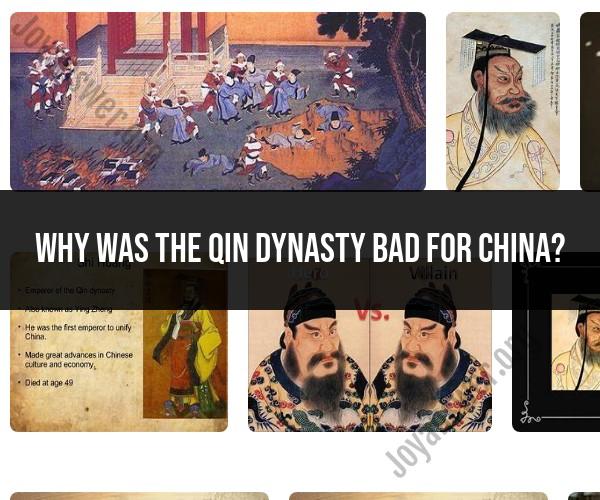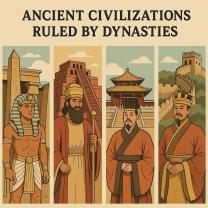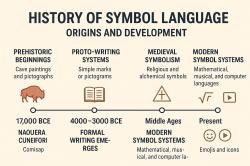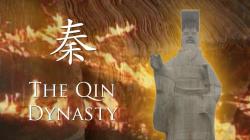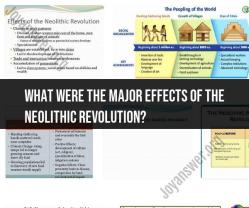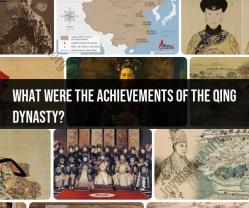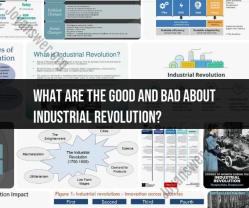Why was the Qin dynasty bad for China?
While the Qin Dynasty brought about significant achievements and innovations in China, it was also marked by several drawbacks and controversies that had negative consequences for the country. Some of the key drawbacks of the Qin Dynasty include:
Authoritarian Rule: Qin Shi Huang, the first emperor, ruled with an iron fist and implemented a highly centralized and authoritarian government. His rule was characterized by strict Legalist policies, which prioritized the power of the state over individual freedoms. This led to widespread censorship, the suppression of dissent, and a climate of fear among the population.
Harsh Labor and Taxation: The construction of monumental projects like the Great Wall of China and the emperor's mausoleum required massive amounts of labor. Much of this labor was forced, and peasants were subjected to heavy taxation and compulsory labor, leading to widespread suffering and resentment.
Cultural Suppression: Qin Shi Huang implemented policies to suppress dissent and control the flow of information. This included the burning of books and the burying alive of scholars who held opposing views. While the standardization of the writing system had positive effects, the destruction of texts and intellectual oppression stifled cultural diversity and innovation.
Tyrannical Rule: Qin Shi Huang's rule was marked by extreme cruelty, including brutal punishments for perceived enemies and dissenters. His autocratic and tyrannical approach created a climate of fear and mistrust among his subjects.
Short Reign and Collapse: The Qin Dynasty was relatively short-lived, lasting for only about 15 years. Qin Shi Huang's harsh rule and forced labor contributed to public discontent and unrest. After his death, the dynasty quickly collapsed due to widespread uprisings and revolts.
Failure to Address Long-Term Issues: While the Qin Dynasty succeeded in unifying China and implementing standardized systems, it did little to address long-term issues, such as land redistribution or governance reforms. These issues contributed to the instability of the subsequent Han Dynasty.
Economic Challenges: The excessive demands on the labor force and the concentration of resources on massive construction projects strained the economy. The heavy taxation and forced labor led to economic hardships for the common people.
Lack of Cultural Integration: Despite its unification efforts, the Qin Dynasty struggled to integrate the diverse cultures and traditions of the conquered states. This lack of cultural integration contributed to ongoing tensions and conflicts within the empire.
In summary, while the Qin Dynasty achieved significant feats like unification, standardization, and construction projects that left a lasting legacy, its authoritarian rule, harsh policies, cultural suppression, and economic challenges had negative consequences for China. The dynasty's oppressive practices and lack of long-term solutions contributed to its short-lived existence and the eventual rise of the Han Dynasty, which adopted a more moderate approach to governance and cultural diversity.
Qin Dynasty Tyranny and Harsh Legalist Policies
The Qin dynasty (221-206 BCE) is known for its tyranny and harsh Legalist policies. The Qin dynasty was founded by Qin Shi Huang, who was a ruthless and ambitious ruler. Qin Shi Huang unified China after centuries of warfare and established a centralized government with himself as the first emperor.
Qin Shi Huang implemented a number of Legalist policies in order to maintain order and consolidate his power. Legalism is a political philosophy that emphasizes the importance of law and order in maintaining social order and political stability. Under Legalism, the government is seen as the supreme authority and the people are expected to obey the law without question.
The Qin dynasty's Legalist policies were harsh and repressive. The government used a system of collective punishment to ensure obedience to the law. This meant that entire families or villages could be punished for the crimes of a single individual. The Qin dynasty also used a system of labor camps to punish criminals and dissenters.
The Qin dynasty's tyranny and harsh Legalist policies were unpopular with the people. There were a number of uprisings and rebellions during the Qin dynasty, but these were all brutally suppressed.
Heavy Taxation and Forced Labor Under Qin Shi Huang
The Qin dynasty imposed heavy taxes on the people to finance its ambitious projects, such as the Great Wall of China and the Terracotta Army. The Qin dynasty also used forced labor to build these projects and to maintain its infrastructure.
The Qin dynasty's heavy taxation and forced labor were a burden on the people and led to widespread discontent.
Short Duration and Disorder Following the Qin Dynasty
The Qin dynasty was a short-lived dynasty. It lasted for only 15 years after the death of Qin Shi Huang. The Qin dynasty collapsed due to a number of factors, including its tyrannical government, heavy taxation, and forced labor.
After the collapse of the Qin dynasty, China entered a period of disorder and civil war. This period is known as the Chu-Han Contention. The Chu-Han Contention lasted for four years and ended with the establishment of the Han dynasty in 206 BCE.
Conclusion
The Qin dynasty was a pivotal period in Chinese history. It unified China after centuries of warfare and established a centralized government. However, the Qin dynasty was also known for its tyranny, harsh Legalist policies, heavy taxation, and forced labor. These factors led to the collapse of the Qin dynasty after only 15 years.
